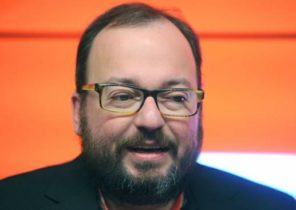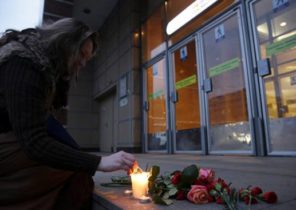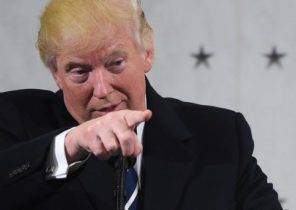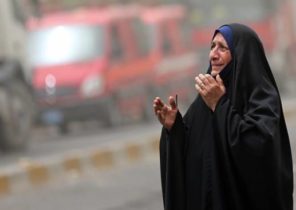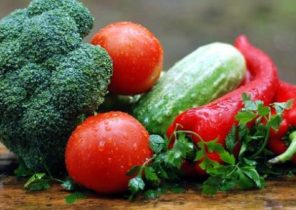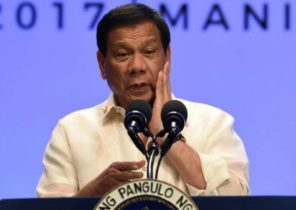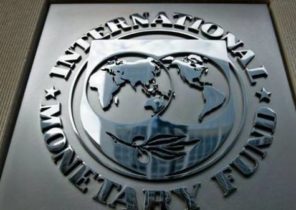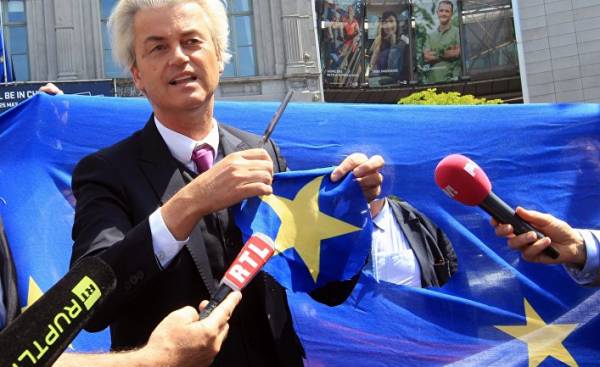
The project GeenPeil (the creators of which called the referendum “no”) is a new Dutch political party, an unusual distinctive feature of which is that it has no program. Instead, it promises that it will ask its members through the online interface on how to vote in Parliament on every bill. Its founder Bart Neyman (Bart Nijman) believes that it will help solve the biggest problem the Dutch policy — to save many citizens from feeling that they are ruled by arrogant, irresponsible elite. The sixth of March GeenPeil began its campaign in Heerhugowaard, a town with modern buildings of red brick, located 30 kilometers North of Amsterdam. Some of the representatives of the environment Neumann went “to the masses”, spending among voters, propaganda work, and he remained in the bus, without stopping something printing on the laptop.
“We want to make democracy more flexible,” says Neumann. In 2015, being the editor of the popular and intentionally aggressive news site with the right bias GeenStijl.nl he came into politics, becoming the initiator of the campaign for a referendum on the Association agreement with the European Union of Ukraine (the Dutch voters voted against the agreement, but the Prime Minister, discussed some conditions, still the agreement was signed). View Bart Neumann is much more clearly defined than the position of the leader of the populist freedom Party of Geert Wilders (Geert Wilders), which all the troubles of the Netherlands accuses Muslims, immigrants and the EU. But Neiman agree with Wilders and other populists in the European one — is that “citizens feel that the authorities do not hear them”.
GeenPeil is just one of the many new parties that will take part in the parliamentary elections in the Netherlands, scheduled for March 15. Many Dutch people call these elections the most unusual of those that they’ve observed. Among the other newcomers — the party “Forum for democracy” (FvD) led with a smug eurosceptic intellectual Bode Thierry (Thierry Baudet), the party “For the Netherlands” (VNL), advocating for tax cuts and against immigrants, led by a cheeky commentator-comedian, party Denk (“Think”) which (mostly) can bring the voices of different generations of immigrants from Turkey and Morocco, and “the Pirate party of the Netherlands”. Because in the Netherlands there is no minimum threshold for representation in Parliament, seats in the legislature can get any of these parties.
International attention focused on the victory of Geert Wilders. It would add to the list of victories of populist — along with PACSICOM and the victory of Donald trump in the presidential election last year. The Wilders still have a chance, but after a long period of high ratings last year, his popularity declines and he is gradually losing ground. The center-right liberal party (“people’s party for freedom and democracy”), Prime Minister Mark Rutte (Mark Rutte) is now leading, with the support of 17% of the electorate ahead of the freedom Party, which is ready to vote the 16% of voters. Geert Wilders is unlikely to be part of the government, because all other major parties ruled out a coalition with him.
A more General problem in the Netherlands is that the society is dissatisfied with the ordinary management process. To lead the country will be difficult, regardless of the outcome of the vote. GeenPeil unlikely to get a seat in Parliament, but the parties Denk, FvD and VNL chances are very high. The number of parties in Parliament could rise from the current 12 to 14 or higher. Small specialized groups — like “the Party for the animals” and party of pensioners “50 plus” — may also get seats in Parliament. In the end, may be formed fragmented legislature in which to boil antikomintern mood, but that will not be able clearly to Express them.
Too cocky for polder
“As the population consists of minorities is unacceptable for us that someone’s voice was not heard in the Hague. But we also want to win our own voice” — says columnist for the daily newspaper NRC Handelsblad, Jan Meeus (Tom-Jan Meeus). A contradiction is by its very nature is a very “very Dutch”.
Dutch political culture is famous for its “polder” model in which groups pursuing disparate interests, through endless approvals produce a compromise solution. It is also characterized by careful attention to detail. In the beginning of every parliamentary elections, the state Bureau for economic policy analysis considers budget plans provided by the political parties and assesses their effectiveness. This analysis defines the struggle of parties over the next few weeks.
At the heart of debates held on the fifth of March between the leaders of the parties have been disputes over the assessments of the Bureau. The candidates argued about the significance of the conversion of tax on possession of vehicle tax on mileage and similar proposals. Their possession of political methods made a strong impression, but the discussion failed to create a themed competition, which would allow someone from the party leaders to stand out. In previous elections right and left, as a rule, to create one single large batch. But this time that did not happen. “I have never participated in such elections, where there is no competition between the two main parties,” — said the MP from the left-liberal party D66 Chord Sonsma (Sjoerd Sjoerdsma).
One of the reasons may be the strong economy of the Netherlands. The country’s GDP grew by 2016, 2.1%, and, according to preliminary government estimates, the country will execute the budget with a small surplus of 200 million euros ($210 million). The prospect to achieve some of the budget “plus” (increase of revenues or reduction in taxes) can lead to reduction in the activity of tactical voting, said a candidate from the green party GreenLeft left Tom van der Lee (Tom van der Lee). “Voters think, why should I not vote for the party that I like the most?” he says.
But the main reason is not enough competitive racing is a strange lack of Geert Wilders. While he refuses to participate in any debate and instead actively engaged in the campaign — mainly on Twitter. It plans to tear Mark Rutte to speak open against him, and put himself the main opponent of the populists. Wilders will participate in the final debate with Rutte one-on-one on March 13. “It is the only hope to create competition,” said the former press Secretary of the Liberal party Kruithof Henri (Henri Kruithof).
In the absence of much conviction in connection with the campaign the number of supporters of the main parties remains stable. The Christian Democrats, the left-liberal party D66, the green party GreenLeft and labor Party, according to polls, will receive about 8%-12% of the vote. In this case the liberals to form a coalition will need at least three other parties, and it is possible that for enterprises in a coalition with the party GreenLeft they will have to make some ideological acrobatic trick. To do this, it will be necessary to conduct lengthy negotiations and work out a compromise version of the government that many of the Dutch is already causing a fair amount of irritation.
If the opinion of the residents of Heerhugowaard is significant, moderate voters are expressing the arguments that previously sounded only from the mouth of the representatives of the extreme parties. Ruud Bakker (Bakker Ruud), which sells cleaning supplies on weekly town fair, a lifetime to vote for the liberals and said that once entertained in his house the family of Chechen refugees. It’s possible that this year he will vote for Wilders or for the party Bode FvD. “We are in the country adhered to very liberal views,” he says. And now he is afraid that the Islamists will try to “come to power” and “to tell our women how to dress”.
While surveys show that the level of support for Geert Wilders continues to fall. But some Dutch people are wondering whether their country is a surprise like trump. Because to create a coalition with the freedom Party no one is going to vote for it easier. According to Sivert van Linden (Sywert van Lienden), a former political activist who now works for the mayor of Amsterdam, he even heard that some disgruntled supporters of the party D66 thinking about how to protest vote for Wilders. “When the curtain falls you never know how significant the protest factor “fuck it all to hell””.
